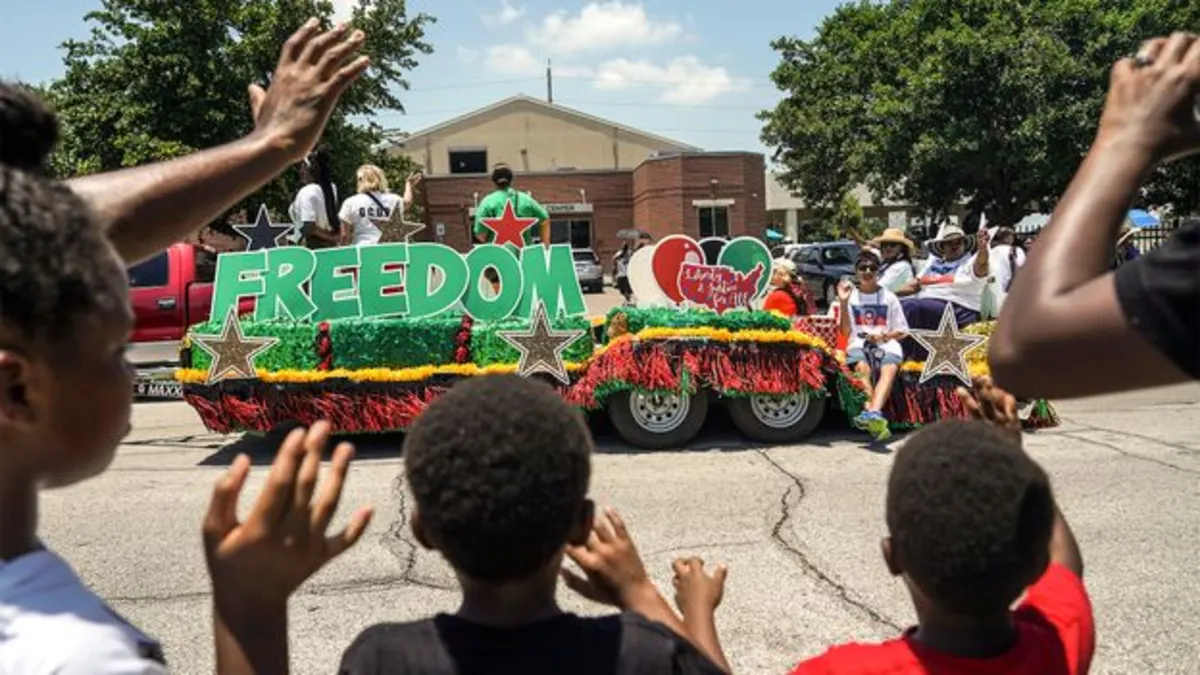
One hundred and sixty years after the historic announcement reached Galveston, Texas, that enslaved African Americans were finally free, the city is committed to honoring Juneteenth year-round. This date, 19 June 1865, marks a pivotal moment in American history when a Union general arrived in Galveston to inform a group of enslaved individuals that the Civil War had ended, and they were now free. Despite President Lincoln's signing of the Emancipation Proclamation more than two years prior, the enforcement of this policy lagged in Texas due to its geographical distance from Union forces.
The initial reaction of Black residents to the news of their delayed freedom was a blend of shock and disbelief, quickly transforming into jubilation. These early celebrations laid the groundwork for what would become an official Texas state holiday in 1980. As Black Texans migrated across the country, they carried their traditions with them, turning the day into a unified celebration in African American communities throughout the South.
Despite its grassroots origins, Juneteenth was only recognized as the newest national holiday in the United States in 2021, when then-President Biden signed legislation formally designating 19 June as a national day of observance. Known by various names such as Freedom Day, Emancipation Day, and Jubilee Day, Juneteenth is now celebrated with parades, rallies, and cookouts across the nation. Major cities like Philadelphia, Atlanta, and Tulsa host some of the largest celebrations, but Galveston embraces its unique role as the birthplace of this significant event.
Mary Beth Bassett, Visit Galveston's senior public relations manager, emphasized, "We have a lot of special events leading up to and on the day of Juneteenth. But what's more important is that you can come and realize the significance of Galveston as the birthplace of Juneteenth at any time of year."
This year, Galveston commemorates the 160th anniversary of the original announcement with a full calendar of events. Alongside its traditional parade, fireworks, and community picnic, the city will host a reenactment of the reading of General Order No. 3, the proclamation announcing emancipation in Texas, at Ashton Villa, a historic home built in 1859. Activities began on 11 June and will continue into July, featuring talks and performances. Notable highlights include a lecture on 21 June about prominent African American Galvestonians, such as educator John Rufus Gibson, and a discussion with the family of George Floyd, whose tragic death ignited nationwide protests in 2020.
While Juneteenth takes center stage during the summer, Galveston locals are dedicated to ensuring that the city's African American history is celebrated throughout the year. Sam Collins III, a local historian and President of The Juneteenth Legacy Project, stated, "The narrative of our shared history is incomplete. There are many stories that have been left out." Collins is actively working towards the establishment of an International Juneteenth Museum in Galveston to amplify narratives about African American history, both past and present.
For travelers eager to explore Galveston's rich African American heritage, local historian Dr. Araminta Coleman Sorrell offers Juneteenth and Beyond tours that delve into the island's history. These tours include significant sites such as the Reedy Chapel African Methodist Episcopal Church, the first Black church in Texas, and the NIA Cultural Centre, which serves as the heart of Black life in the city. Visitors can also explore the centre's Juneteenth Headquarters and Art Gallery, showcasing the works of African American artists and the impressive Absolute Equality mural.
Several local museums have developed permanent exhibitions that highlight the history of Juneteenth and the contributions of the African American community in Galveston. For instance, the exhibition And Still We Rise... at Ashton Villa uses interactive interviews, historical documents, and digital touchpoints to engage visitors with the past. Additionally, the city's tourism board has created two self-guided trails: the Freedom Walk tour and the Galveston African American History Tour, which offer a broader historical perspective on the island's African American heritage.
By commemorating Juneteenth not just on one day but throughout the year, Galveston is ensuring that the legacy of freedom and the rich history of African Americans are preserved and celebrated, engaging both locals and visitors alike.